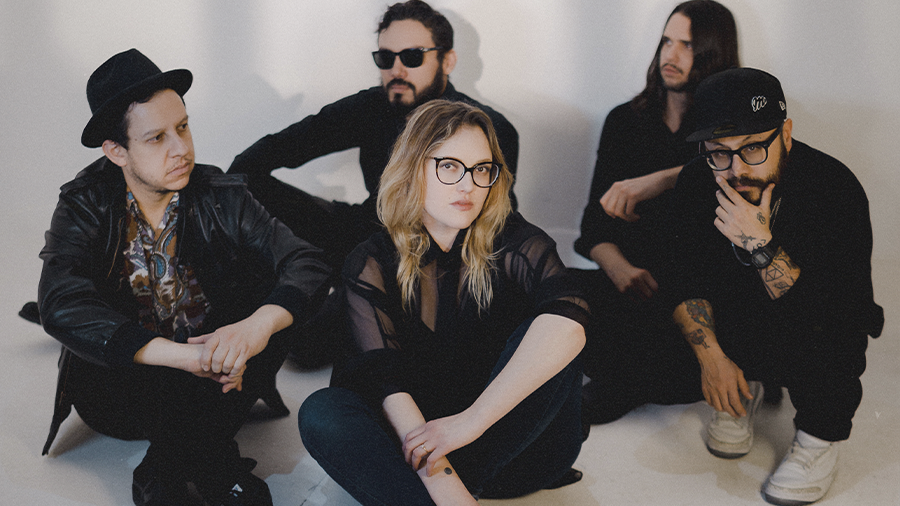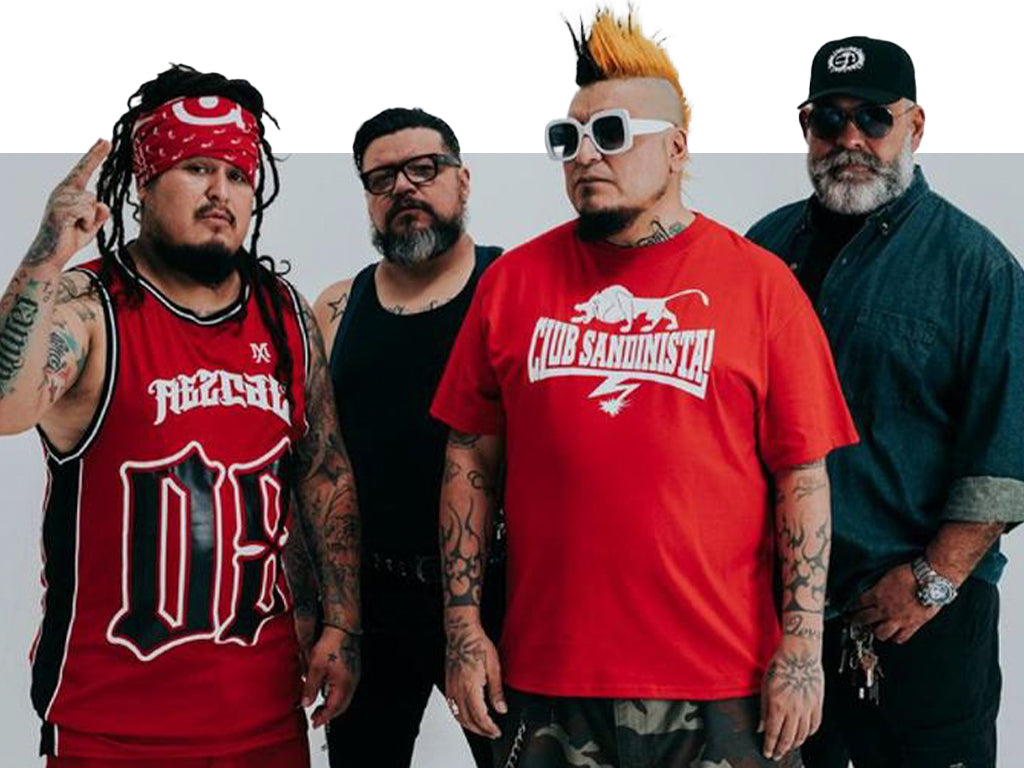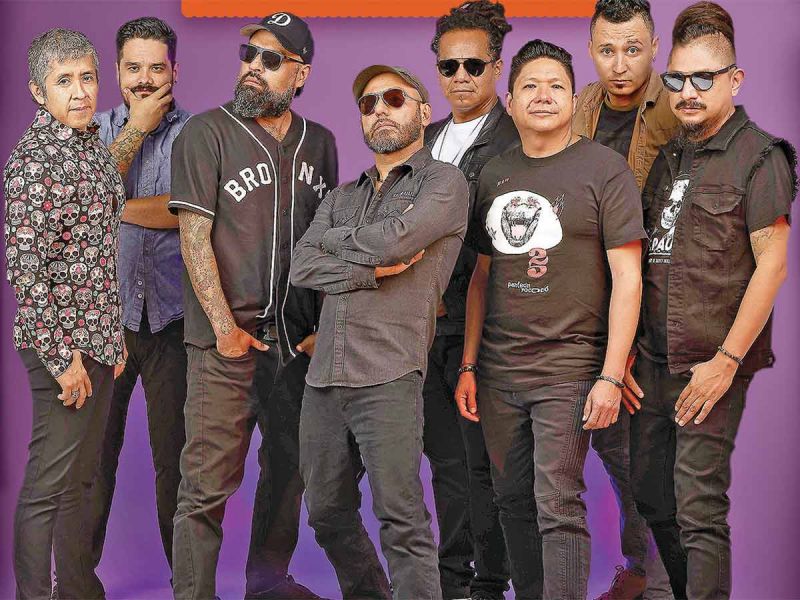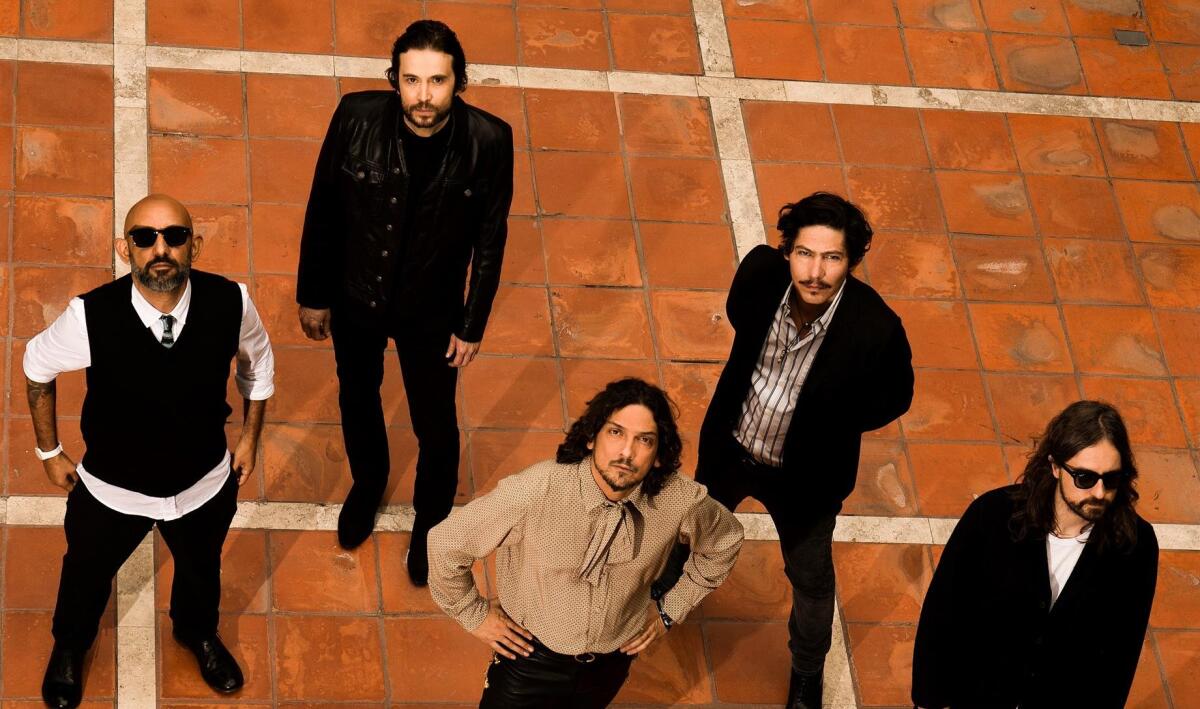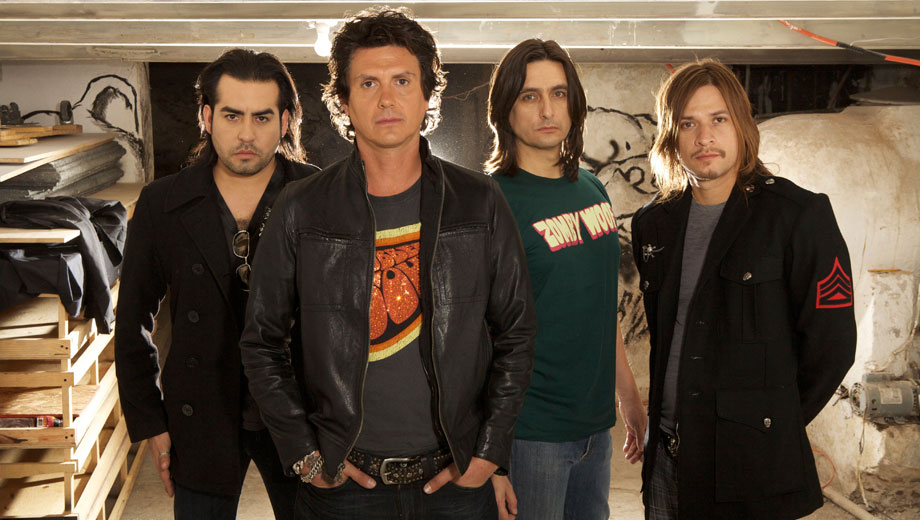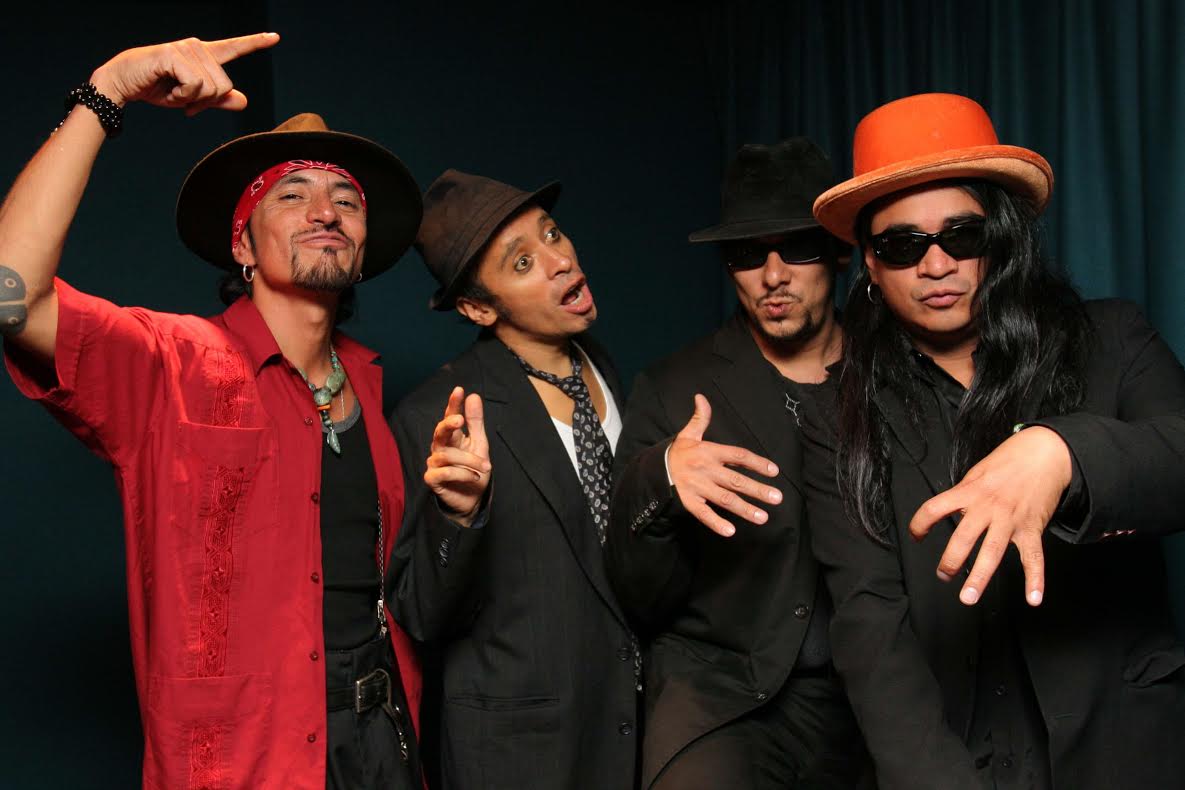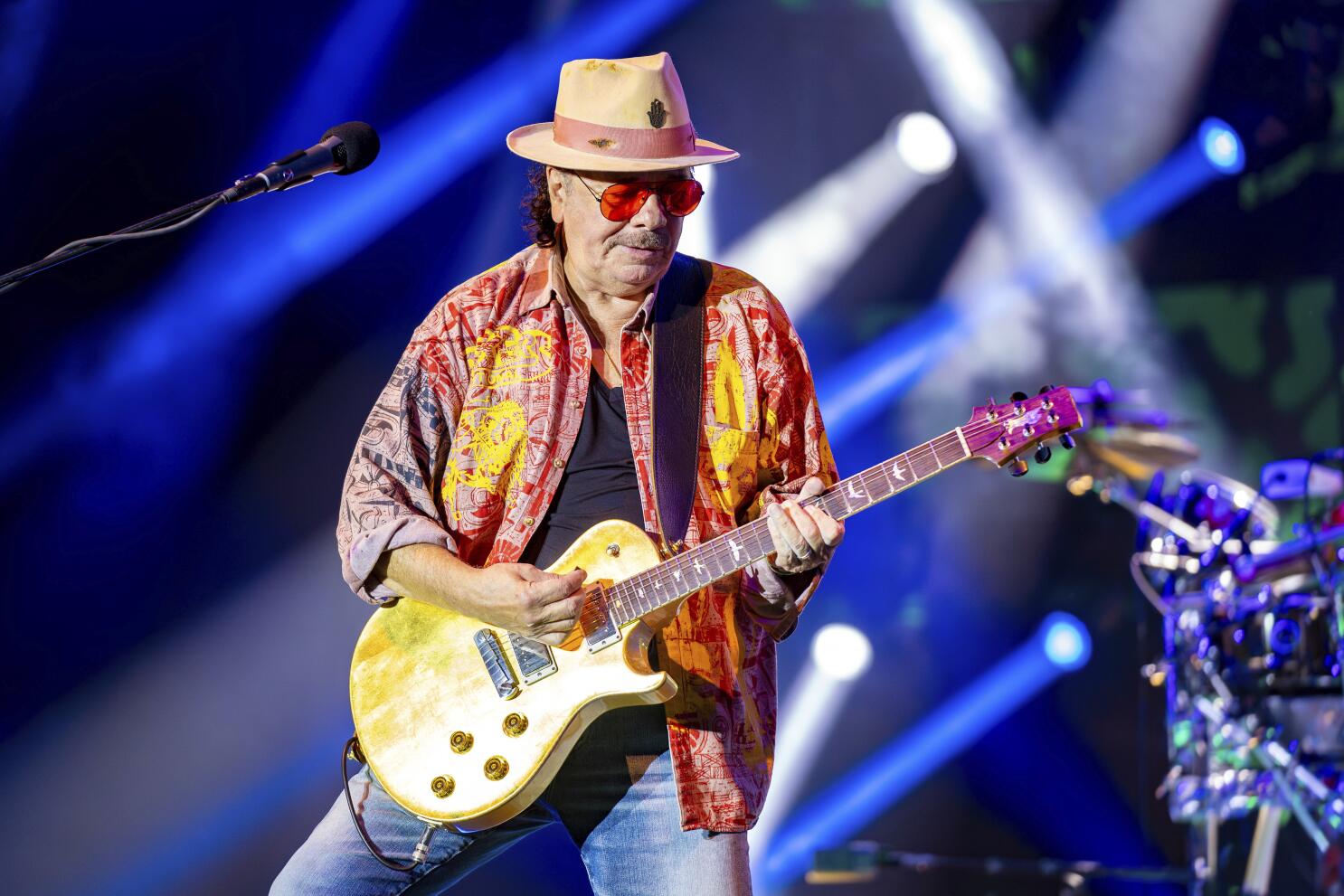Best Mexican Bands Of All Time
All topics are curated by you, the community. Free from editorial bias, 100% independent. Upvote your favorite items, propose missing ones and shape the ranking of this topic.
Explore the rich and diverse world of Mexican music with our curated list of the best Mexican bands of all time.
From the timeless rock classics of Caifanes and the eclectic sounds of Café Tacuba to the energetic punk of Molotov and the melodic pop-rock of Maná, this collection showcases the incredible talent and innovation that has shaped the Mexican music landscape. The alternative rock brilliance of Zoe, and the iconic tunes of legendary groups like Los Fabulosos Cadillacs. Immerse yourself in the dynamic rhythms, poetic lyrics, and enduring legacies of these extraordinary bands that have left an indelible mark on the global music scene.
-
Hello Seahorse! is a Mexican indie pop band formed in 2005 in Mexico City.
Led by lead singer Denise Gutiérrez, the group is known for their distinctive sound that combines dreamy pop melodies with electronic elements. The original members include Fernando Burgos, Bonnz!, and Joe Fusscar. Popular for songs like "Bestia" and "No Es Que No Te Quiera" Hello Seahorse! has made a significant impact in the Mexican and Latin American music scenes. They are recognized for their experimental and atmospheric approach to indie pop, consistently evolving their sound and garnering praise for their innovative musical compositions.
from wikipedia.orgRetreiving from wikipedia...
-
Motel is a Mexican rock band that was formed in 2002 and gained popularity for their melodic rock and pop-influenced music.
The original members included Guillermo (Billy) Méndez, Rodrigo Dávila Chapoy, and José Damián. Their debut album "Motel" (2006) brought them commercial success with hits like "Dime Ven" and "Y Te Vas". The band's music often explores themes of love and personal experiences. Motel has continued to release successful albums, such as "17" (2008) and "Prisma" (2014), maintaining their presence in the Mexican music scene and being recognized for their emotionally resonant contemporary rock sound.
from wikipedia.orgRetreiving from wikipedia...
-
Botellita de Jerez was a Mexican rock band formed in 1983 and active until 1999.
Comprising Sergio Arau, Armando Vega-Gil, and Tito Fuentes, the band gained popularity in the late 1980s and early 1990s. Known for their eclectic style, blending rock, punk, blues, and Mexican music, they were recognized for humorous and satirical lyrics addressing social and political issues. Despite disbanding in 1999, Botellita de Jerez left a lasting impact on the Mexican rock scene and is remembered as a pioneering and influential group. Armando Vega-Gil's unfortunate passing in 2019 marked the end of an era for the band.
from wikipedia.orgRetreiving from wikipedia...
-
Fobia is a prominent Mexican rock band that emerged in the late 1980s and played a crucial role in the "Rock en tu Idioma" movement.
The original members included Leonardo de Lozanne, Francisco Huidobro, Iñaki Vázquez, Javier Ramírez, and Gabriel "Bam Bam" González. Known for their diverse musical influences, including punk and new wave, Fobia's debut album in 1990 featured hits like "Microbito" and "Veneno Vil". They continued to release successful albums like "Mundo Feliz" and "Amor Chiquito" in the 1990s, solidifying their position in the Latin American rock scene. Despite a hiatus, Fobia reunited and continued to produce new music, maintaining their influence on subsequent generations of rock enthusiasts.
from wikipedia.orgRetreiving from wikipedia...
-
Santa Sabina was a Mexican rock band that emerged in the late 1980s, known for its eclectic and innovative sound blending rock, jazz, and other genres.
The original members included Rita Guerrero, Alfonso Figueroa, Pablo Valero, Jacobo Lieberman, Alfonso André, and Leonel Rosales. Fronted by the influential vocalist Rita Guerrero, the band played a significant role in the alternative and rock en español movements in Mexico. Santa Sabina's music explored dark and introspective themes, and some of their popular songs include "Azul Casi Morado" and "Mar Adentro". Despite internal conflicts and Rita Guerrero's tragic death in 2011, Santa Sabina left a lasting legacy in the history of Latin American alternative rock.
from wikipedia.orgRetreiving from wikipedia...
-
Porter is a Mexican indie rock band formed in 2004 in Guadalajara.
The original lineup included David Velasco, Diego Bacter, Fernando de la Huerta, Víctor Valverde, and Juan Son. Known for their distinctive sound blending indie rock, progressive rock, and electronic elements, Porter gained acclaim with their debut album "Atemahawke" in 2007. After a hiatus and lineup changes, they returned with the album "Moctezuma" in 2015, showcasing a shift towards a more electronic sound. Porter is recognized for their intricate musical arrangements, poetic lyrics, and contributions to the Mexican indie music scene, despite their relatively short discography.
from wikipedia.orgRetreiving from wikipedia...
-
Kinky is a Mexican electronic rock band formed in 1998, originating from Monterrey, Nuevo León, Mexico.
Known for their fusion of electronic, rock, and dance music, the original members include Gilberto Cerezo, Ulises Lozano, Carlos Chairez, Omar Góngora, and Cesar Pliego. With hits like "Más" and "Hasta Quemarnos" Kinky has been influential in the Latin alternative and electronic music scenes. The band's diverse sound, blending electronic beats, guitar riffs, and bilingual lyrics, has contributed to their popularity both in Latin America and internationally. Kinky is recognized for their energetic live performances and collaborations with artists from various genres.
from wikipedia.orgRetreiving from wikipedia...
-
El Gran Silencio, formed in 1993 in Monterrey, Mexico, is a rock and alternative band known for their eclectic sound that incorporates rock, ska, reggae, and cumbia.
The original members include Cano and Tony Hernández, Isaac "Campa" Valdez, and Julián Villarreal. They gained popularity for dynamic performances and socially conscious lyrics addressing issues like social injustice. Hits like "Dormir Soñando" and "Chúntaros Radio Poder" have contributed to their success. The band's enduring impact on the Latin American rock scene is marked by their ability to blend diverse musical styles and deliver socially relevant messages.
from wikipedia.orgRetreiving from wikipedia...
-
Los Ángeles Azules is a Mexican musical group renowned for their cumbia music.
Formed in 1976, the band gained widespread popularity in the 1980s and 1990s for blending traditional cumbia with modern sounds, incorporating electronic elements. Their music, characterized by catchy melodies and danceable rhythms, features nostalgic lyrics. Hits like "17 Años" and "Cómo Te Voy a Olvidar" contributed to their success. In recent years, the group has experienced a resurgence, collaborating with diverse artists. Los Ángeles Azules are celebrated for their unique fusion and enduring influence in the Latin music scene.
from wikipedia.orgRetreiving from wikipedia...
-
Molotov is a Mexican rock band formed in 1995, known for their eclectic musical style that incorporates rock, rap, punk, and funk elements.
The original members include Tito Fuentes, Micky Huidobro, Randy Ebright, and Paco Ayala. The band gained popularity for their socially and politically charged lyrics, addressing issues in Mexican society. With hits like "Gimme Tha Power" and "Frijolero" Molotov became a prominent presence in the Latin American rock scene. Their debut album, "Dónde Jugarán las Niñas?" released in 1997, was a commercial success. Molotov continues to be influential with energetic live performances and a unique blend of musical genres.
from wikipedia.orgRetreiving from wikipedia...
-
Los Teen Tops, formed in 1958, was a Mexican rock and roll band that played a significant role in popularizing the genre in Mexico during the late 1950s and early 1960s.
Led by vocalist Enrique Guzmán, they became teen idols and contributed to the rock and roll movement in the country. Known for hits like "Popotitos" and "La Plaga" the band left a lasting impact on Mexican music history, despite going through various lineup changes over the years. They are regarded as pioneers of Mexican rock and roll.
from wikipedia.orgRetreiving from wikipedia...
-
Panteón Rococó is a Mexican ska and rock band formed in 1995 known for their energetic live performances and socially conscious lyrics.
Their musical style combines ska, punk, reggae, and rock. The band has maintained popularity in Mexico and other Spanish-speaking countries with hits like "La Dosis Perfecta" and "La Carencia". Panteón Rococó addresses social and political issues in their lyrics, and they remain influential in the Latin American music scene, holding a prominent position in the ska and rock genres.
from wikipedia.orgRetreiving from wikipedia...
-
Zoé, formed in 1994, is a highly acclaimed Mexican rock band renowned for their alternative and experimental sound.
The band, consisting of members León Larregui, Sergio Acosta, Jesús Báez, Ángel Mosqueda, and Rodrigo Guardiola, has played a significant role in shaping the Latin American rock scene. Their early albums, including "Zoé" (2001) and "Rocanlover" (2003), laid the foundation for their unique style. Breakthrough success came with "Memo Rex Commander y el Corazón Atómico de la Vía Láctea" (2006) and "Reptilectric" (2008), featuring hits like "Nada" and "Labios Rotos". Zoé's evolution continued with albums like "Programatón" (2010) and "Aztlán" (2018), showcasing musical versatility. Known for atmospheric sound and introspective lyrics, Zoé enjoys a dedicated fan base and remains a prominent force in the alternative and Latin American rock landscape, celebrated for both critical acclaim and captivating live performances.
from wikipedia.orgRetreiving from wikipedia...
-
Maná, formed in 1986 in Guadalajara, Mexico, is a highly influential and internationally acclaimed rock band known for their melodic sound and socially conscious lyrics.
With members Fher Olvera, Alex González, Sergio Vallín, and Juan Calleros, the band achieved widespread recognition with their breakthrough album "Dónde Jugarán los Niños?" (1992), featuring hits like "Vivir Sin Aire". Maná continued to produce successful albums like "Cuando los Ángeles Lloran" (1995) and "Revolución de Amor" (2002), addressing themes of love, social justice, and the environment. The band's dynamic live performances and commitment to activism have earned them numerous awards, cementing their status as one of the most significant and beloved Latin American rock bands globally.
-
Jaguares, formed by Saúl Hernández in the late 1990s after the disbandment of Caifanes, is a Mexican rock band known for their fusion of rock, alternative, and traditional Mexican influences.
The band quickly gained popularity with their debut album "El Equilibrio de los Jaguares" (1996), featuring hits like "Detrás de los Cerros" and "Viento". Subsequent albums such as "Bajo el Azul de Tu Misterio" (1999) and "Cuando la Sangre Galopa" (2001) showcased their evolution and cemented their status in Latin American rock. Jaguares' music explores diverse themes, and their emotionally charged performances have earned them a devoted fan base. Saúl Hernández's artistic vision continues to shape the band, ensuring their enduring impact on the Latin American rock landscape.
from wikipedia.orgRetreiving from wikipedia...
-
Maldita Vecindad, a Mexican rock and ska band formed in 1985, has left an indelible mark on the Latin American music scene with their energetic and socially conscious music.
Comprising members Roco Pachukote, Sax, Pato, Aldo, and Lobito, the band's debut album "Maldita Vecindad y los Hijos del Quinto Patio" (1989) garnered attention with hits like "Pachuco" and "Kumbala". Their unique fusion of rock, ska, punk, and traditional Mexican sounds, coupled with socially relevant lyrics, resonated widely. Subsequent albums like "Circo" (1991) and "Bailando Él Dub" (1996) continued to showcase their musical versatility. Renowned for high-energy live performances, Maldita Vecindad remains a cultural force, influencing generations and holding a significant place in Latin American music history.
-
El Tri, known as "The Godfathers of Mexican Rock" was formed in 1968 and has played a pivotal role in shaping the Mexican rock scene.
Led by founder Alex Lora, the band's debut album in 1973 marked the beginning of their influential career. El Tri is recognized for their diverse rock styles, incorporating blues, punk, and traditional Mexican elements. Over the years, they have produced notable albums like "Oye Cantinero" (1986) and "No Podemos Volar" (1997), addressing social and political issues in their lyrics. With a legacy spanning decades, El Tri remains an iconic institution in Mexican rock, appreciated for Alex Lora's distinctive voice and the band's ability to adapt and evolve. Their enduring presence cements them as pioneers and influential figures in the Latin American rock landscape.
from wikipedia.orgRetreiving from wikipedia...
-
Caifanes, a legendary Mexican rock band formed in 1987, played a crucial role in the Latin American rock movement.
With their distinctive fusion of rock, new wave, and traditional Mexican music, they gained prominence with their debut album in 1988. Led by Saúl Hernández, the band's atmospheric and poetic music often explores mysticism and cultural themes. "El Silencio" (1992) solidified their status with hits like "No Dejes Que". Despite lineup changes, Caifanes continued releasing successful albums, leaving an enduring impact on Latin rock. With a dedicated fan base and a profound influence, they remain a significant force in the world of rock en español.
from wikipedia.orgRetreiving from wikipedia...
-
Café Tacuba, a Grammy Award-winning rock band from Mexico formed in 1989, is known for its innovative fusion of rock, punk, electronic, and traditional Mexican influences.
With members Rubén Albarrán, Emmanuel del Real, Joselo Rangel, and Enrique Rangel, the band gained fame with their self-titled debut album in 1992. Café Tacvba's music blends diverse genres like ranchera and cumbia, showcasing versatility and cultural fusion. Their thought-provoking lyrics and experimental approach, evident in albums like "Re" and "Jei Beibi" have contributed to their influence in the alternative and rock en español scenes. The band's enduring impact makes them icons in Latin American music.
from wikipedia.orgRetreiving from wikipedia...
-
Carlos Santana, born on July 20, 1947, is a Mexican-American guitarist, songwriter, and bandleader renowned for his influential contributions to rock and Latin music. His distinctive guitar style, characterized by melodic and soulful playing, has made him a celebrated figure in the music world.
Carlos Santana, a trailblazer in Latin rock, formed the band Santana in the late 1960s. Their seamless blend of rock, blues, and Latin elements gained international acclaim after a captivating Woodstock performance in 1969. The debut album featured hits like "Evil Ways" and "Black Magic Woman." Santana's career continued with influential albums like "Abraxas" and "Santana III" showcasing iconic tracks such as "Oye Como Va". Collaborations, notably the 1999 album "Supernatural" earned multiple Grammys, including Album of the Year for "Smooth" featuring Rob Thomas. Santana's music explores spiritual themes, evident in albums like "Caravanserai" and "Lotus". Beyond music, Carlos Santana is known for philanthropy and advocacy. His enduring influence and genre-defying approach make him an iconic figure in global music.
from wikipedia.orgRetreiving from wikipedia...
